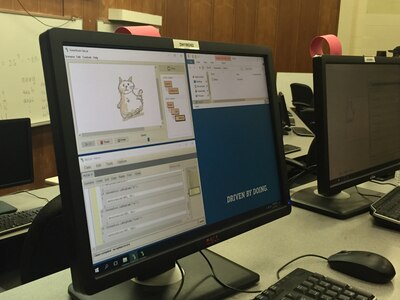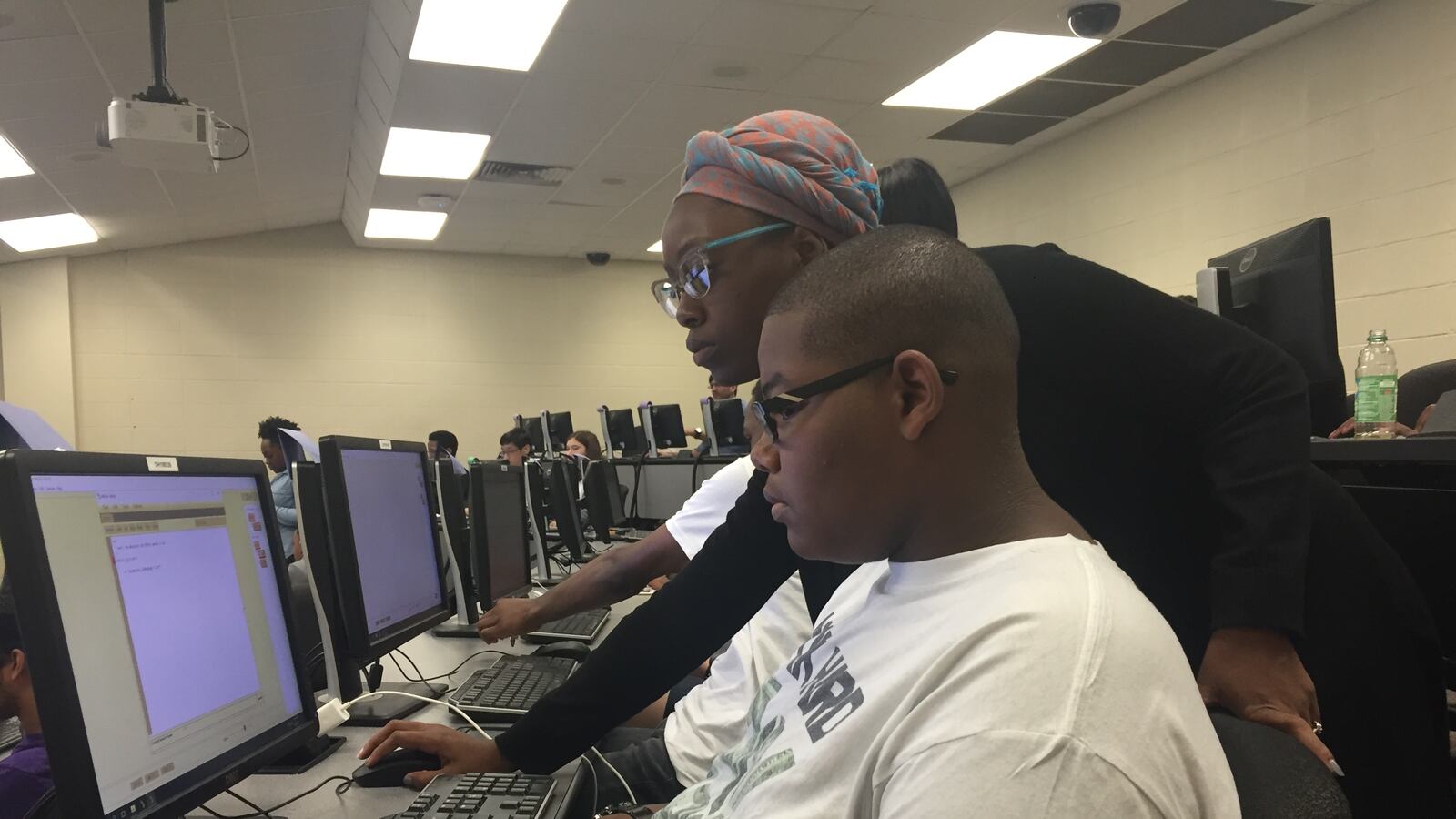Pushing up his glasses on the bridge of his nose, Joshua Williams focuses on lines of computer code projected onto a wall inside of a University of Memphis lecture hall.

A rising sophomore at Central High School, Williams moves his fingers adroitly across a keyboard to spell out various commands. With each keystroke, he moves a virtual cat back and forth across his computer screen. Cheers erupt around the room as other students complete the same exercise.
Williams is among Memphis students who aren’t resting this summer while schools are on summer break. Taking advantage of free camps like the GenCyber Boot Camp, many are learning the language of computers and developing skills related to programming.
For a second straight summer, the University of Memphis recently hosted two week-long coding camps to show middle and high school students the ropes of coding with Java through games and simulations. Funded jointly by the National Security Agency and the National Science Foundation, the GenCyber camps aim to train the next generation of cybersecurity professionals to fill the more than 1 million lucrative jobs open in the growing field, as well as to encourage young people to practice safe online behaviors.
The Memphis camps are among 131 happening this year in 39 states. The University of Memphis was tapped as a host because of the school’s cybersecurity research program through its nationally recognized Center for Information Assurance.
The city also provides GenCyber with a platform for exposing low-income students to a marketable skill that many aren’t developing through their daily public school courses.
Organizers actively sought out students from Shelby County Schools to participate after learning that only three of its schools offer Advanced Placement computer science. Recruiters visited schools and community centers to talk up the camp, eventually drawing about half of their campers from the urban district, said Kelly Freeman, a project assistant.
While GenCyber is focused on cybersecurity and coding for that purpose, Shelby County Schools is trying to get all of its students up to speed with basic computer science skills.
Chief information officer John Williams wants the district’s students eventually to gain coding skills in the lowest grade levels — and especially to reach youngsters who have never been exposed to computer science.
Toward that end, district leaders are working to establish school-by-school guidelines to measure how teachers and students use technology. A survey of students, parents and teachers is in the works to learn “where they think we are and where they think we ought to be going,” he said.
“If we make it a priority, we’ll have the money to do it. I’m pushing the envelope along with our chief of schools to say this is a priority. It’s not an optional thing and it’s not a magic bullet. If we don’t get our kids educated on the use of technology, they will not be prepared for college, career or anything else when they graduate,” Williams said.
Memphis schools may also get an additional assist from the University of Memphis. The school’s Center for Information Assurance is working on a year-round program to dispatch computer science staff to various schools to train local teachers about cybersecurity and computer skills. The idea is for local teachers eventually to integrate cybersecurity practices into their own classroom lessons.
“This is a field that is constantly changing, so if something is one or two years old, it has no value,” said Dipankar Dasgupta, a professor of computer science and the center’s founding director. “Unless people are continuously upgrading their knowledge, it is very difficult to keep up with what is happening.”
"If we don’t get our kids educated on the use of technology, they will not be prepared for college, career or anything else when they graduate."
John Williams, SCS chief information officer
The relevance of computer technology has been championed by the two most recent presidential administrations. President Barack Obama called it “a basic skill, right along with the three Rs,” while President Donald Trump has called for additional funding to bolster the Department of Homeland Security’s cybersecurity and counterterrorism efforts.
In Memphis, the GenCyber camps are a small step in the right direction. To make the camps fun and to break down the mechanics of coding, instructors use Greenfoot, a visual program heavy on games and simulations.
Coding lessons are taught by a computer science professor at the university. Campers also hear from guest speakers about online safety and work on a team project to present to a panel of judges at the end of the week.
For Paloma Mirelez, a 15-year-old student at Germantown High School, the camp helped to fuel her interest to become an engineer. Her mother encouraged her to enroll.
“It’s cool because we get to make things,” Mirelez said. “The Greenfoot program makes coding fun.”


